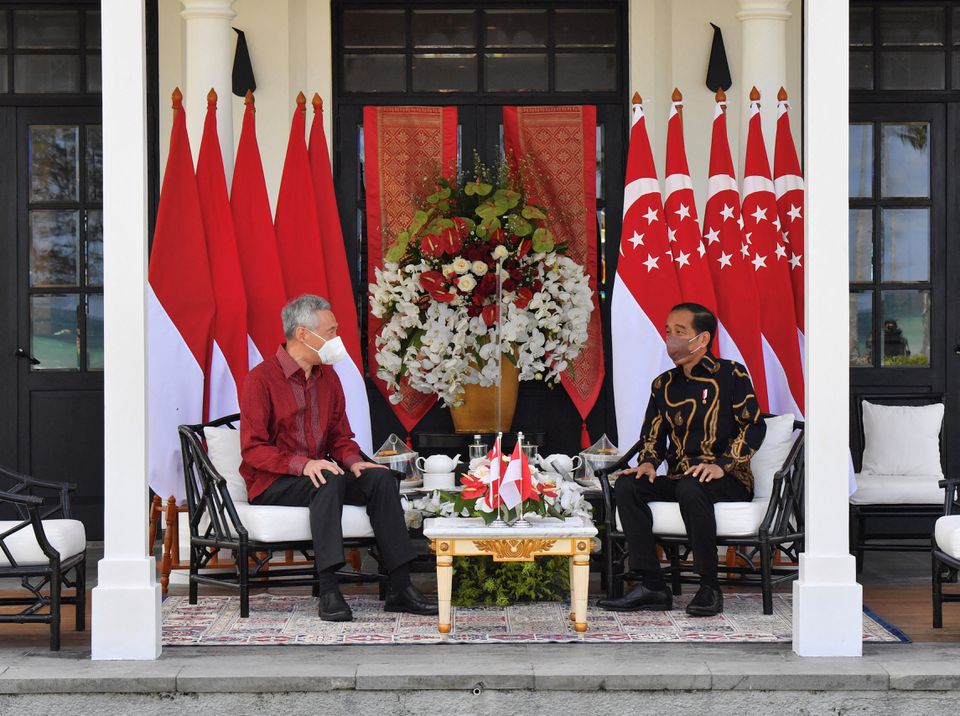Indonesia, Singapore sign extradition, airspace and defense agreements

Singapore’s Prime Minister Lee Hsien Loong talks with Indonesian President Joko Widodo during their annual leaders’ retreat at the Indonesian island of Bintan in Riau, Indonesia, January 25, 2022. Presidential Palace/Agus Suparto/Handout via REUTERS
JAKARTA — Indonesia and Singapore signed on Tuesday a bilateral extradition agreement, a move that Jakarta expects to help authorities in their effort to bring to justice people accused of stashing offshore billions of dollars in state money.
Senior cabinet ministers from both countries also signed bilateral agreements covering airspace and defense in a ceremony aired on Indonesia’s State Secretariat YouTube channel.
The signings follow a meeting between President Joko Widodo and Singapore Prime Minister Lee Hsien Loong on the Indonesian island of Bintan as part of their annual leaders’ retreat.
The issue of extradition has long been a frustration for Indonesia because of concerns about the difficulty of bringing some fugitives accused of embezzling large sums during the Asian financial crisis to justice.
“The extradition treaty will enhance cooperation and combating crime and send a clear, positive signal to investors,” Prime Minister Lee said at the signing ceremony.
Under the extradition agreement, people who had committed 31 types of crime will be liable to be extradited and it will apply to offenses committed up to 18 years ago, a statement from Indonesia’s investment and maritime affairs ministry said.
The agreement would also mean that people would not be able to escape justice by changing their citizenship, it said.
“Therefore, the implementation of the criminal extradition agreement will create a deterrence effect for felonies in Indonesia and Singapore,” the statement said.
In 2007, Indonesian President Susilo Bambang Yudhoyono and Prime Minister Lee oversaw the signing of an extradition treaty and defense cooperation agreement, but it was never ratified by Indonesia’s parliament.
Indonesia has set up a new so-called “BLBI” task force that is going after $8 billion of bailout funds given to bank owners and borrowers after the Asian financial crisis in the late 1990s that was never repaid.
The Indonesian ministry’s statement also said the extradition agreement should help “effectively reach” those implicated by the BLBI investigation.
Lalola Easter Kaban of Indonesia Corruption Watch, a non-governmental organization, welcomed the development saying it would help in the hunt for corruption suspects who might have fled to Singapore seeking to maintain “impunity” from law enforcement agencies.
The other agreements signed between the countries included one giving Indonesia more control of airspace over the Riau and Natuna islands, areas close to both countries, and a defense agreement.
Indonesia will delegate to Singapore the provision of air navigation services in portions of the airspace for 25 years, which can be extended by mutual consent, a Singapore foreign ministry statement said. Singapore sees the airspace as important for effective operations and growth of Changi airport, one of the world’s busiest before the COVID-19 pandemic.